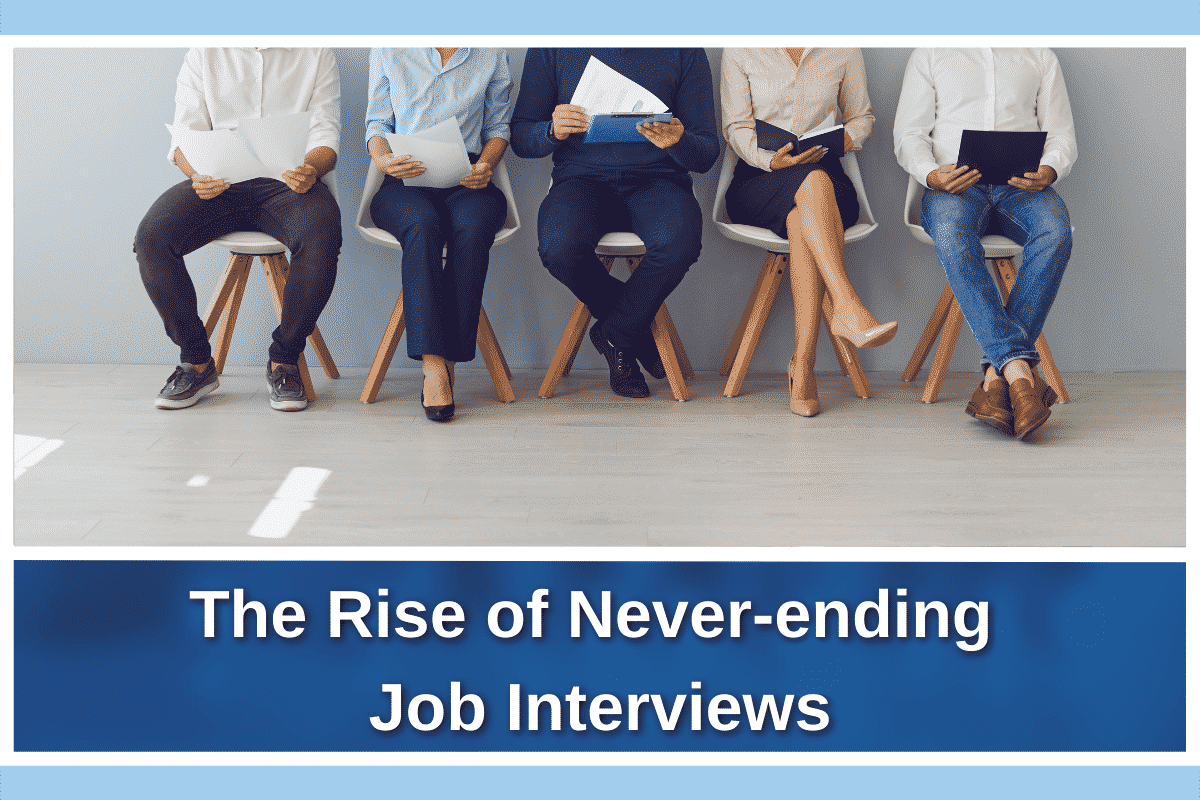
Some companies are asking candidates to attend multiple interviews. But too many rounds could be a red flag – and even drive candidates away.
Every jobseeker welcomes an invitation to a second interview, because it signals a company’s interest. A third interview might feel even more positive, or even be the precursor to an offer. But what happens when the process drags on to a fourth, fifth or sixth round – and it’s not even clear how close you are to the ‘final’ interview? Candidates go elsewhere.
The importance of streamlined hiring
Trial and error is bad and costly for companies who are hiring, so they often compensate by making the recruitment process more and more forensic. This means conducting multiple interviews to gather valuable information to help them more clearly determine which candidate has the most potential. In the best-case scenario, this is a great investment for all involved: it ensures that the candidate won’t struggle in the job, and that the company won’t have to repeat the process all over again.
A streamlined hiring process is key and gives a company an edge in a competitive employment market. Google, for example, recently examined its past interview data and determined that four interviews was enough to make a hiring decision with 86% confidence, noting that there was a diminishing return on interviewer feedback thereafter. Previously, candidates applying for a job at Google could be subjected to more than a dozen interviews. The number of people involved in the process has also been reduced, because Google found that four interviewers could make the same hiring decisions that a larger number of interviewers had in the past.
The key people who should be involved in the hiring process include the person who would be the employee’s direct manager, their supervisor and human resources. If it’s a C-suite position, it may include other C-suite executives and, possibly, some tenured employees. Yet, it’s important not to get too many people involved.
There is this concept that there must be a better candidate out there, so companies get more interviewers involved and, sometimes, they just end up more confused, noting that too many interviewers can create a lack of focus in the questioning as well as unease for the candidate.
Hire – or risk losing candidates
Companies should nail down a hire-by date from the start of the recruitment process, because the best candidates only transition the job market briefly. A drawn-out interview processes can impact negatively on candidates’ interest in the role. Research shows that if interview processes drag on, good candidates lose interest – and go elsewhere
According to a survey from global staffing firm Robert Half, 62% of US professionals say they lose interest in a job if they don’t hear back from the employer within two weeks – or 10 business days – after the initial interview. That number jumps to 77% if there is no status update within three weeks.
Paul McDonald, a Los Angeles-based senior executive director at Robert Half, says that the average time-to-hire in the US has ebbed and flowed in recent months. It was elongated for much of 2020 and early 2021 due to the pandemic when companies were often “breadcrumbing” – or stringing along – candidates. Now, in 2022 he says, it’s become more consolidated: If anyone is still breadcrumbing today, “they’re risking losing candidates because there are so many opportunities [for them]”. Not only that, they may also be tarnishing their reputation. Some 26% of respondents to the Robert Half survey said they would leave a negative comment anonymously on review sites if they felt like they were being strung along, potentially harming the chances for the company to attract top talent down the road. Of course, companies may not be stringing candidates along on purpose. Final approval for recruitment may be delayed because of shifting bottom lines or unforeseen circumstances beyond the company’s control – potentially moving the recruitment goalposts. If valid reasons aren’t communicated clearly, however, that may be a red flag for jobseekers. McDonald says that if a company is indecisive, it can provide a candidate with crucial insight into its culture. “If the decision-making process is this difficult for the organization – if they’re not able to pull the trigger after three or four interviews and you’ve done everything asked of you and they’re still unsure – then that’s a key indicator of what it might be like to work for that organization and those managers,” he says.
In Summary, complicated processes and interview fatigue are making quality candidates go elsewhere.
A refined, streamlined, well communicated process with an estimated hire date is the answer.
